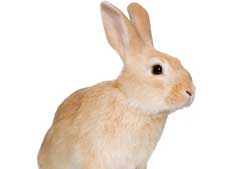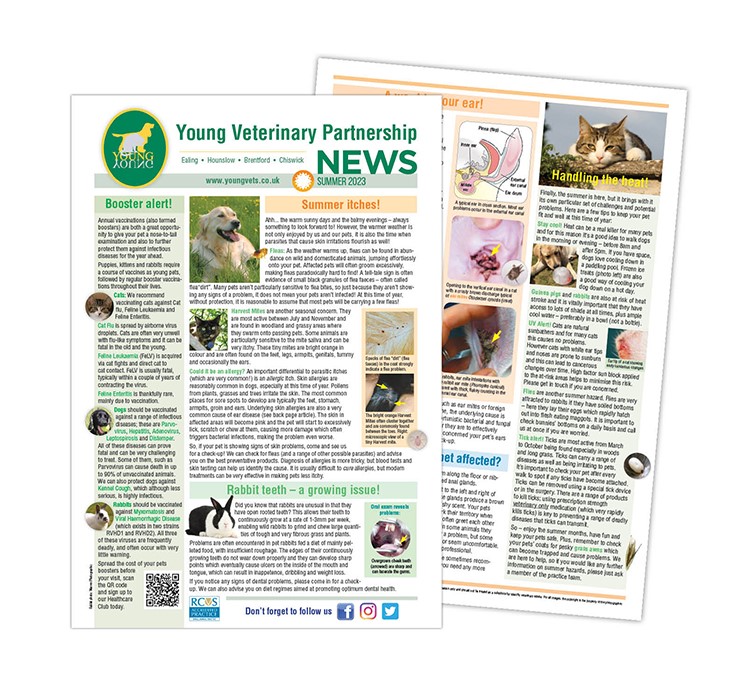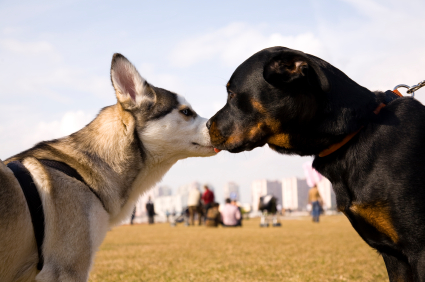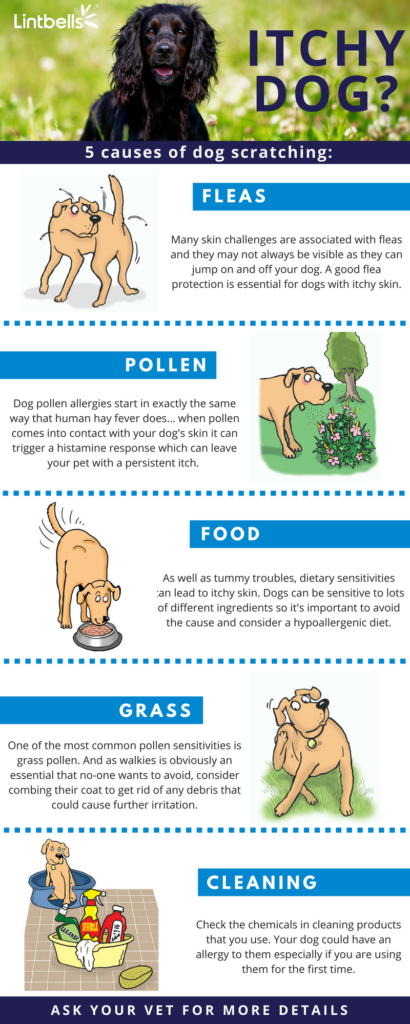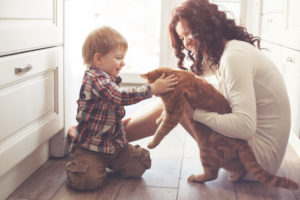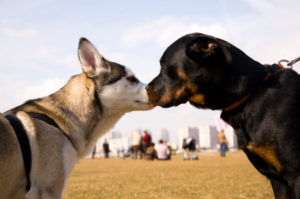8 must-dos when taking your dog on the train
Taking your dog on the train for the first time? Here are eight simple tips for a fuss-free, waggy-tailed journey. Tickets please!
Newsflash: dogs travel for free on trains. You can take up to two pooches per passenger, gratis. What about that doesn’t spell adventure? Whether you are visiting friends, heading out to the country for walkies or taking your pup into the office to stoke a little colleague jealousy, the train is a fast way to get there. Here are eight things to keep in mind to make sure your journey stays on the right track.

1. Start small
If it’s Fido’s first time on the train, try to take a short off-peak journey in preparation. It will give you a chance to see how your dog reacts to an unfamiliar way of travelling, without oodles of commuters buzzing around his paws with their briefcases.
2. Give them medication for any travel sickness
Around one in six dogs suffer from travel sickness. That ratio is far higher in dogs younger than three. And while sickness is more commonly associated with car journeys, the clackety-clack of the railway track could leave your pup feeling worse for wear if they are prone to nausea while on the move. The good news is that simple medication is available that will leave your dog cool, calm and comfortable while travelling – without pesky side-effects like drowsiness. Speak to our experienced team to find out more.
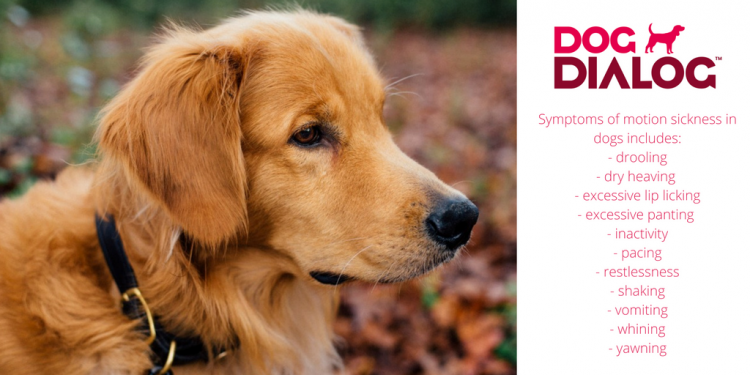
3. Factor in railway respite
Depending on your route and itinerary, scheduling breaks in your journey may not be practical. But if you can, factor in some railway respite on steady ground to give your furry friend a chance to stretch their legs and – ahem – answer any calls of nature. Speaking of which, make sure they have plenty of opportunity to perform the unmentionables before your journey.
4. Plan the d-word delicately
Dinner, of course. You should aim to avoid making your barking buddy travel on a full stomach. That’s enough to make any dog feel uncomfortable in the tummy region, whether they are prone to travel sickness or not. You don’t want to make a dog’s dinner of your journey now, do you?

5. Make sure your dog is tuckered our first
An excitable doggy might be fun at home, but we guarantee that won’t be the case on the train. Not for you, not for your fellow passengers. If your pup is being particularly rambunctious, you may even be asked to depart the train at the next stop. For a peaceful pooch, try to tire them out before your journey with a long walk or a run around the park.
6. Pack a doggy bag
While it would be convenient if your dog could trot off to the buffet carriage to order themselves a treat – as well as a cuppa for you – the reality is that dogs are banned from the restaurant carriage. So, it’s down to you to provide a couple of light snacks for longer journeys. Pack a bowl and some water too. And it’s worth considering a toy to keep your pup occupied – a non-squeaky one, for everyone’s sanity – as well as a familiar blanket from home. Dogs aren’t allowed on seats (unless you want to pay), so they will have to lie faithfully at your feet. Consider a pheromone spray on your dogs blanet to help keep them calm.
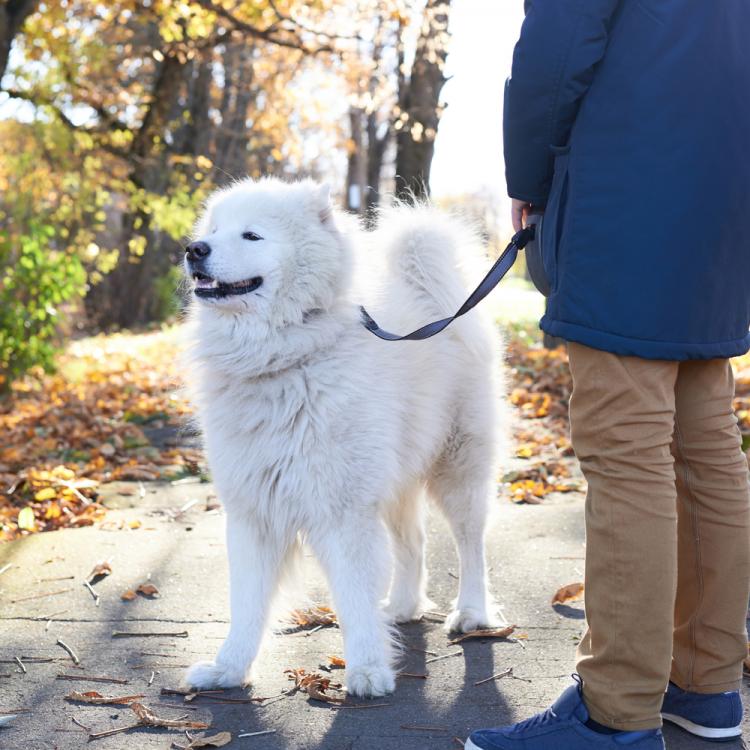
7. Don’t forget their lead
Curious canines would no doubt love the freedom to say hello to other animals and fellow passengers in their carriage. Unfortunately, that’s a non-starter. Dogs must either be kept on a lead – at all times – or carried in a basket/crate no bigger than 85/60/60cm. Those are the rules.
8. Make sure you know where your stop is
It sounds silly, but sometimes you only realise you are pulling in to your station at the last minute. Cue frantic rush to put your coat on, gather your things and grab your luggage. Add a dog into the mix as well? You might just end up staying on the train a little longer than you planned. Make a mental note of the stop before yours and give yourself plenty of time to get ready.

Over to you…
With a bit of simple prep, taking your dog on the train is a doddle. And remember to talk to your vet if your pup displays any signs of travel sickness. It’s easy to manage with simple medication. Happy travels!
Blog and images supplied by Zoetis.
Written by Gemma Hopkins BVETMED, CERTVC, MRCVS, RCVS.


